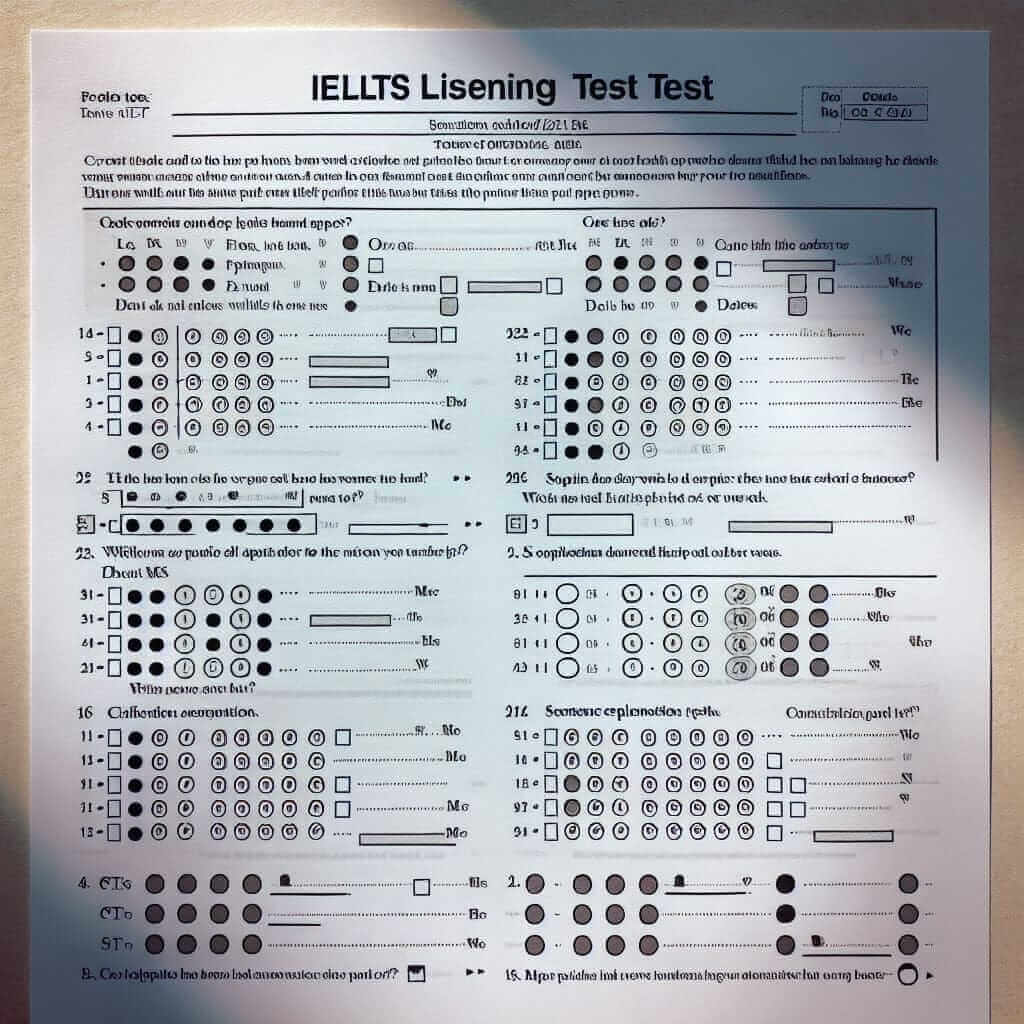As an IELTS instructor with over 20 years of experience, I understand the importance of every detail in the IELTS exam, particularly in the listening section. One common area where test-takers often seek clarity is how to correctly write dates on the answer sheet. While it might seem trivial, using the wrong format can lead to an incorrect answer, ultimately impacting your overall score.
Understanding the Importance of Date Formats in IELTS Listening
The IELTS listening test assesses your ability to comprehend spoken English in various contexts. Dates are frequently mentioned in conversations and monologues, requiring you to accurately identify and record them. The key is to familiarize yourself with accepted date formats to ensure your answers are marked correctly.
How to Write Dates Correctly on Your IELTS Listening Answer Sheet
The golden rule is to follow the instructions given in the question. However, if no specific format is specified, here are the most commonly accepted ways to write dates in IELTS listening:
1. Day-Month-Year (British English Format):
- Write the day as a numeral, followed by the month in full or abbreviated form, and the year in full.
- For example: 25 December 2023 or 25 Dec 2023.
2. Month-Day-Year (American English Format):
- While less common in IELTS, this format uses the month first, followed by the day and year.
- For example: December 25, 2023 or Dec 25, 2023.
Important Considerations:
- Consistency is Key: Choose one format and stick to it throughout the entire listening test.
- Abbreviations: While abbreviations like ‘Dec’ for December are generally accepted, it’s best to write the month in full if you’re unsure.
- Ordinal Numbers: Avoid using ordinal numbers (e.g., 25th) unless specifically instructed to do so.
- Clarity is Crucial: Write your dates clearly and legibly to avoid any confusion during marking.
Examples from IELTS Listening Tests
Let’s look at some examples of how dates might appear in the listening test:
- Speaker: “The exhibition will run from the 10th of July until August the 15th.”
- You write: 10 July – 15 August (or July 10 – August 15)
- Speaker: “The deadline for applications is December 2nd, 2024.”
- You write: 02 December 2024 (or December 02, 2024)

Tips for Success
- Practice Makes Perfect: Regularly practice listening to and writing dates in different contexts. You can find practice materials online or in IELTS preparation books.
- Pay Close Attention: During the exam, listen carefully for dates and note them down accurately.
- Double-Check Your Answers: Before submitting your answer sheet, double-check that you’ve used the correct date format and that your handwriting is clear.
Conclusion
Mastering the art of writing dates correctly might seem like a minor detail, but it can make a significant difference in your IELTS listening score. By understanding the accepted formats, practicing regularly, and paying close attention during the exam, you can ensure that your answers are accurate and contribute to your overall success. Remember, every point counts on your journey to achieving your desired IELTS score. Good luck!